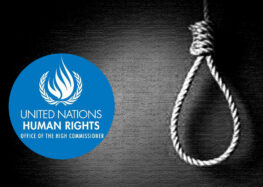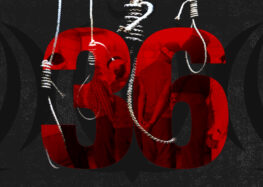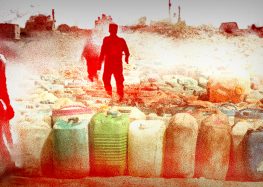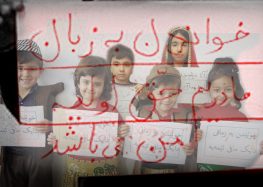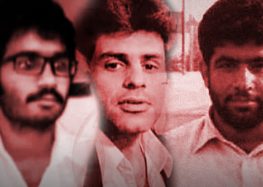Iranian VP Summoned to Judiciary for Commenting on High Execution Rate of Drug Traffickers
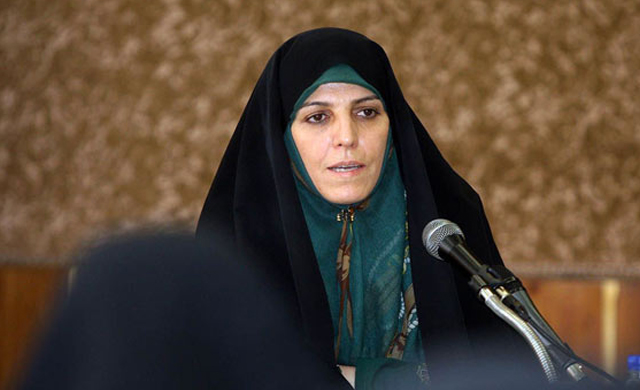
Shahindokht Mowlaverdi, Iran’s vice president for Women and Family Affairs, has been summoned to the Judiciary to explain a comment she made in February about all the men in a village being executed for drug offenses.
“Officials in Sistan and Baluchistan province have transferred this case to Tehran and Ms. Mowlaverdi has been summoned to the prosecutor’s office to give explanations and respond to the complaint,” said Judiciary Spokesman Gholamhossein Mohseni Ejei, during a press conference on April 10, 2016.
Mowlaverdi criticized the lack of social support for the families of executed drug traffickers during an interview with the semi-official Mehr News Agency published on February 23, 2016, and said: “We have a village in Sistan and Baluchistan province where all the men have been executed.”
“Their survivors are potential drug traffickers as they would want to seek revenge and provide money for their families,” she added. “There is no support for these people.”
Mowlaverdi did not say when the executions took place nor did she mention the village by name.
The vice president’s comment was widely shared and debated on social media in Iran and abroad. Officials in Sistan and Baluchistan—a province in southeastern Iran bordering Pakistan and Afghanistan—denied any such village existed and filed a complaint with the government.
The province’s deputy prosecutor, Mohammad Ali Hamidian, said Mowlaverdi’s “thoughtless and completely false statements” had caused “a media wave against Iran by our enemies,” according to an article published in the hardline daily, Vatan Emrooz, on April 4, 2016.
“This village does not exist at all, but even if it did, it’s wrong for the vice president to mention it because it causes public anxiety,” he added.
Mowlaverdi’s reaction to Hamidian’s comments came in the form of a brief statement issued on April 6, 2016 announcing that President Hassan Rouhani’s legal adviser would be following up on the matter.
Sistan and Baluchistan is one of Iran’s poorest provinces and has one of the highest numbers of executions per capita in the country.
High unemployment has drawn many of its inhabitants towards illegally trafficking the drugs that are pouring into Iran from bordering Afghanistan and Pakistan.
UN officials have repeatedly voiced concern over Iran’s use of the death penalty in drug-related convictions. Under international law, the use of the death penalty is restricted to only the “most serious” crimes, and the UN special rapporteur on extrajudicial, summary or arbitrary executions has explicitly stated that drug-related crimes do not meet this criterion. Nevertheless, drug offenders are routinely sentenced to death and executed in Iran.
“The Sistan and Baluchistan province experiences a high rate of executions for drug-related offenses or crimes deemed to constitute ‘enmity against god’ in the absence of fair trials,” said the UN’s special rapporteur for human rights in Iran, Ahmed Shaheed, in a March 2013 report.
In 2015, Iran executed a total of 1,052 people—the highest per capita execution rate in the world. The vast majority of these executions are for drug-related crimes—more than 70 percent, according to Mohammad Javad Larijani, Head of the Iranian Judiciary’s Human Rights Council.
In Shaheed’s March 2016 report, he criticized the high number of executions in Iran for non-violent drug-related offenses, noting that changes in Iran’s drug laws in 2010 increased to 17 the number of drug offenses that could be punished by death.
Mohammad Javad Larijani, the head of the Judiciary’s Human Rights Council, described Shaheed’s latest report as “false” and said the country’s high number of executions were legal according to Iranian laws.
However in a sign that the ground is shifting in Iran regarding its use of the death penalty, in December 2015, more than 70 members of Iran’s Parliament presented a bill that, if ratified by the full legislature and approved by the Guardian Council, would reduce the punishment for drug trafficking from death to life imprisonment. The bill is still pending.
Human rights activists as well as legal experts have noted that Iran’s tough anti-drug laws have not resulted in any reduction in drug-related crimes.

